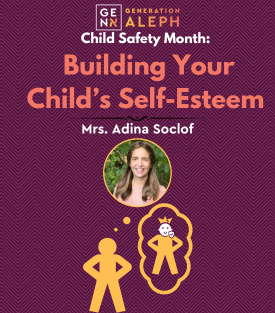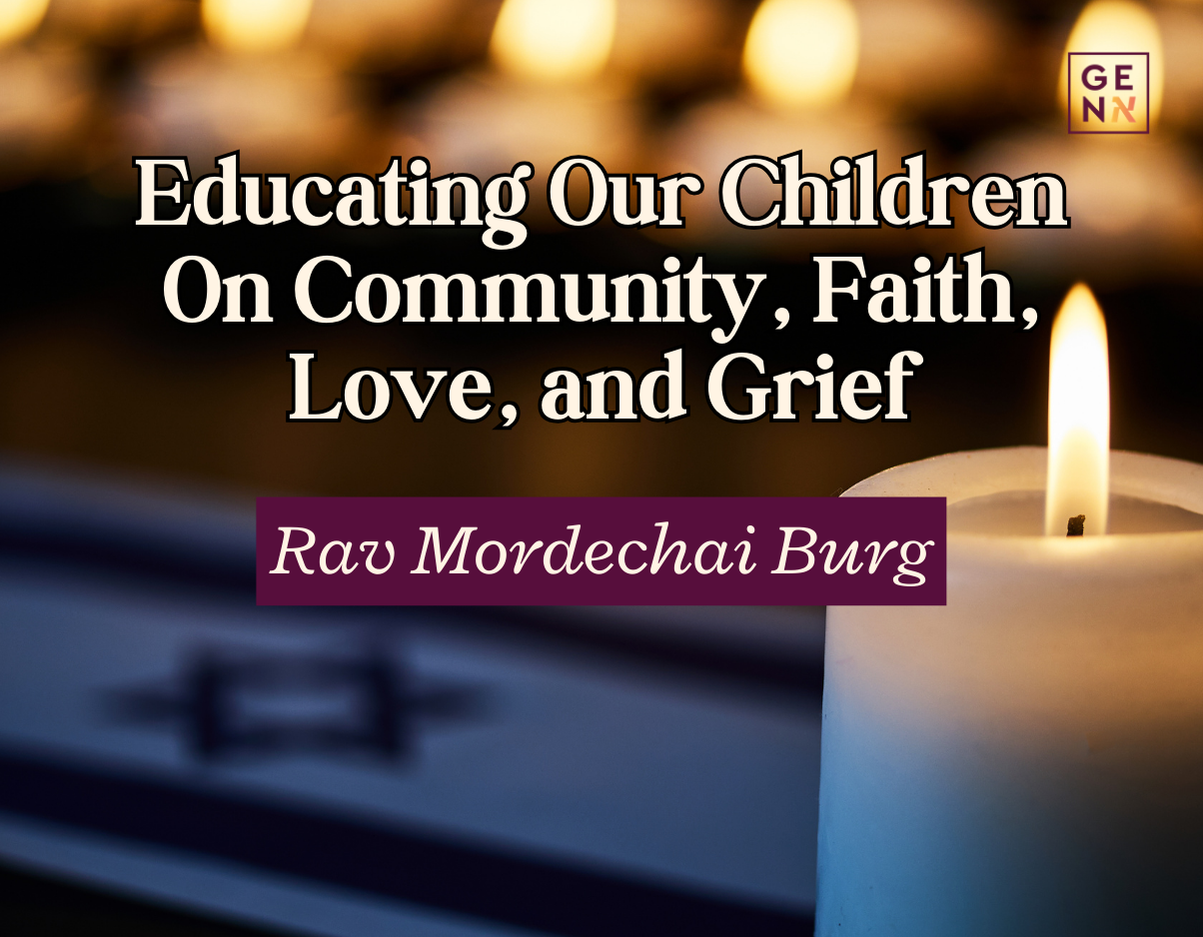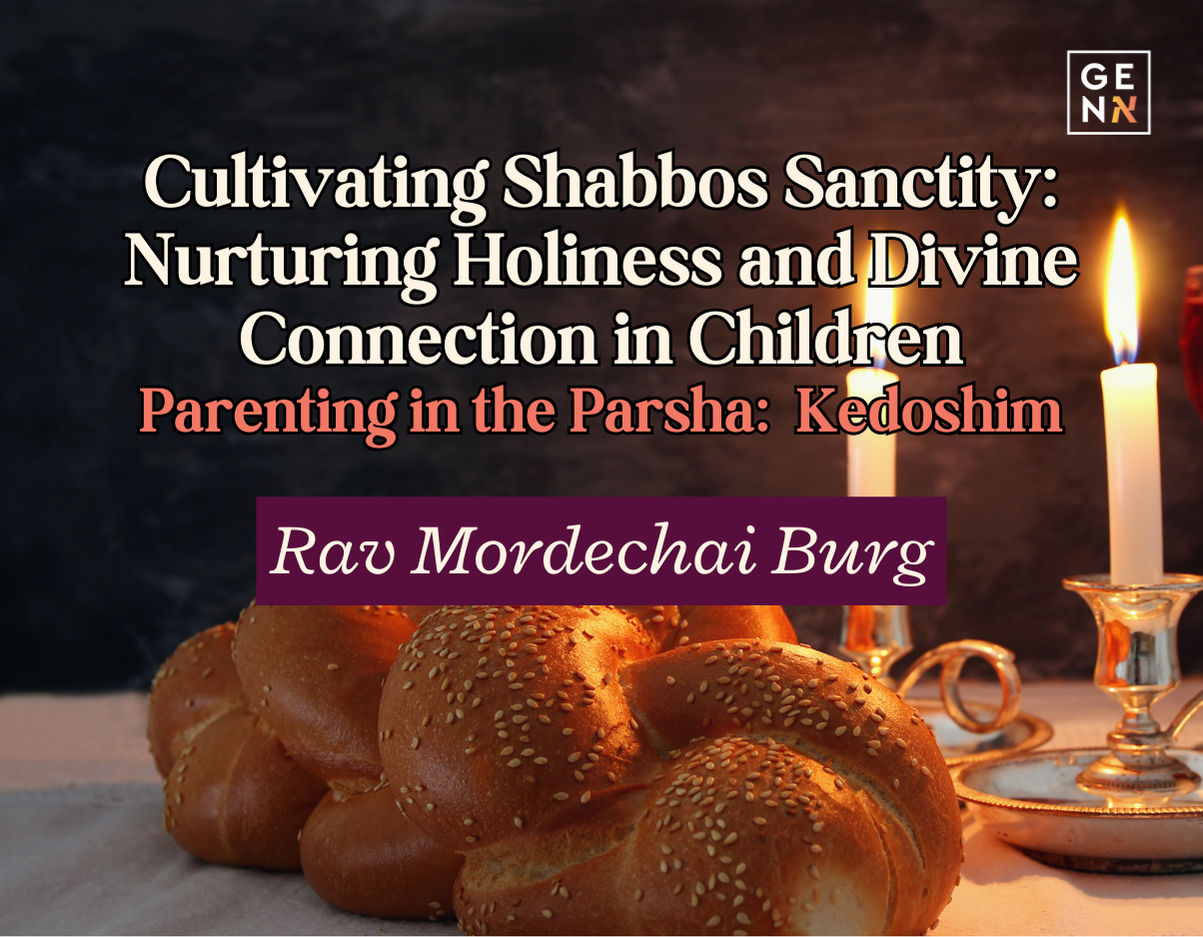וּלְהוֹרֹ֖ת נָתַ֣ן בְּלִבּ֑וֹ ה֕וּא וְאָֽהֳלִיאָ֥ב בֶּן־אֲחִֽיסָמָ֖ךְ לְמַטֵּה־דָֽן:
And He put into his heart [the ability] to teach, both him and Oholiab, the son of Ahisamach, of the tribe of Dan. (Shemos 35:34)
One of the more common questions that I have received throughout my Chinuch career is, “Does Hashem really care if I (fill in the blank – daven, put on Teffilin etc…)? Everyone does that! There is nothing that makes my service of Hashem unique. Why would Hashem care about me?” There is something exceptionally beautiful about questions such as these. They speak to our Godly desire to have a meaningful relationship with our Maker. Somehow we are not satisfied just doing what everyone else is doing. We have a natural need to express our individuality within our Yiddishkeit. And yet, my experience is that when I provide a philosophical answer, the Talmid is left unsatisfied. As experienced parents and educators are aware, there is always the question behind the question. Without too much probing the real issue rises to the surface. “There is nothing special about me. I don’t come from a Rabbinic family or have any distinguished lineage. I am not a genius. I do not feel I have any special talents. I am just your average guy. Why would Hashem care about me?”
Hashem chose not one but two people to imbue Klal Yisrael with the divine inspiration to build the Mishkan. As slaves it is not likely that Klal Yisrael developed the necessary artisanship to craft the vessels of the Mishkan. Betzalel and Oholiav were chosen to inspire the people. Betzalel was of royal lineage. Hailing from the tribe of Yehuda, he was the great grandson of Miriam (Moshe Rabeinu’s older sister) and Calev ben Yefuneh (one of two spies who did not return with an evil report about Eretz Yisrael). Miriam and Calev had a son who was named Hur, Betzalel’s grandfather. When Klal Yisrael fought Amalek it was Aaron HaKohen and Hur (Aaron’s nephew) who held up Moshe Rabbeinu’s hands. When Moshe went up to Har Sinai for forty days and nights to receive the Torah Moshe told the Zekeinim that if they had any cases that needed adjudication they could turn to Aaron or Hur. Heroically Hur stood up to the masses and refused to build the Eigel Hazahav. He was killed Al Kiddush Hashem. Betzalel, with such distinguished lineage, was an obvious choice for architect of the Mishkan.
In stark contrast, Oholiav ben Ahisamach, enjoyed no such accolades. In fact, Rashi (Shemos 35:3) points out that Oholiav was a descendant of Shevet Dan. As a child of Bilhah, one of the handmaidens, the tribe of Dan was considered of lower status yet he is equated with Betzalel to show that they were equal partners in building the Mishkan. This is, as the Passuk in Iyov () says, “And the nobleman is not recognized ahead of the pauper.” Ibn Ezra (Shemos 35:34) notes that, “Oholiab was equal to Bezalel in all areas of work and skill.” The Zohar (Pikudei 37) writes that Betzalel and Ohaliav were the perfect complements to one another. Betzalel represented the right side of Chesed while Oholiav represented the left side of Din. Each side was necessary in order to strike the perfect balance. Chazal (Arachin 16b) teach us that a person should change his occupation from the occupation of his ancestors. Just as Oholiav built the Mishkan, so too the Beis HaMikdash was built by חירם מצר, a descendant of Shevet Dan.
The Torah’s communication is absolutely clear. Lineage is not defined by our parents or grandparents. It matters not if we hail from royalty or from simple stock, every single one of us is the unique child of Hashem. God does not make doubles. We all have something unique to contribute. In the words of Marianne Williamson, “Our deepest fear is not that we are inadequate. Our deepest fear is that we are powerful beyond measure. It is our light, not our darkness that most frightens us. We ask ourselves, ‘Who am I to be brilliant, gorgeous, talented, fabulous?’ Actually, who are you not to be? You are a child of God. Your playing small does not serve the world. There is nothing enlightened about shrinking so that other people won’t feel insecure around you. We are all meant to shine, as children do. We were born to make manifest the glory of God that is within us. It’s not just in some of us; it’s in everyone. And as we let our own light shine, we unconsciously give other people permission to do the same. As we are liberated from our own fear, our presence automatically liberates others.”
As parents and educators this is a fundamental part of our mission: to ensure that every single child is raised to believe (overtly and covertly) that whether they are the descendants of great men or simple folk, there is no such thing as a common Jew. We are the descendants of the Divine. And as the descendants of the Divine, we all have a talent that makes us come alive. The classroom does not always provide our children the opportunity to express their greatness. Sadly, many children conflate their grade and their self worth. How many of us did not excel in the classroom but found their passion in a school club or a Chesed initiative or a team? Every child has a talent that can be brought out and it is the job of both the Betzalel’s and the Oholiav’s of the world to imbue our children with divine inspiration. The Betzalel’s of the world speak to those children who come to greatness naturally. The Oholiav’s of the world inspire those children who feel that they have nothing to offer. Oholiav reminds these children that he is an equal partner in the building of the Mishkan.
The Talmud Yerushalmi (Berachos 4:3) teaches that the number of Berachos in Shemoneh Esrei (18 – the 19th Bracha was added later on) corresponds to the number of times the word Tzivah (commandment) is mention in Vayakhel and Pekudei. The Gemara points out that the word Tzivah is mentioned 19 times, not 18. The Gemara answers that the first Tzivah is mentioned before Oholiav is introduced and therefore it is not included in the count. Without Oholiav, there is no Tzivah! The Lubavitcher Rebbe zt”l concludes from this Gemara that before we Daven, we must reach a state where even those of us who feel lowly, like we have nothing to offer, understands that without them there is no “Tzivah”. The word Tzivah does not only mean commandment, it means connection. Only when both the Betzalel’s and the Oholiav’s recognize that they have an equally meaningful and unique connection with Hashem can we Daven. Only together can they build the Beis HaMikdash.
Submit your questions
"*" indicates required fields











